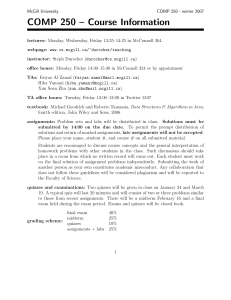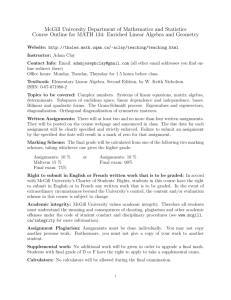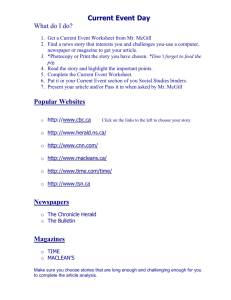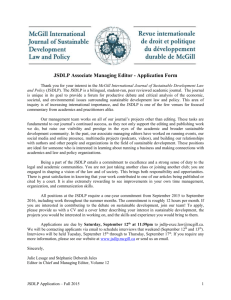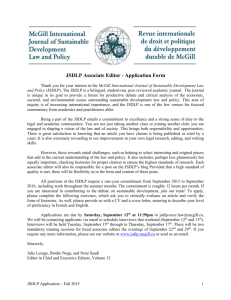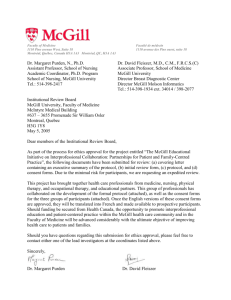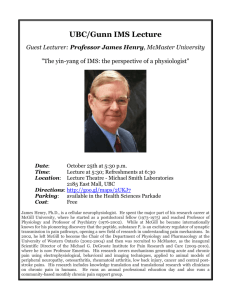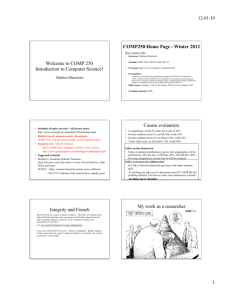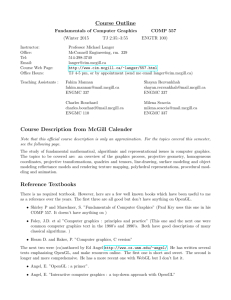Compiler Design COMP 520 McGill University, Fall 2013
advertisement
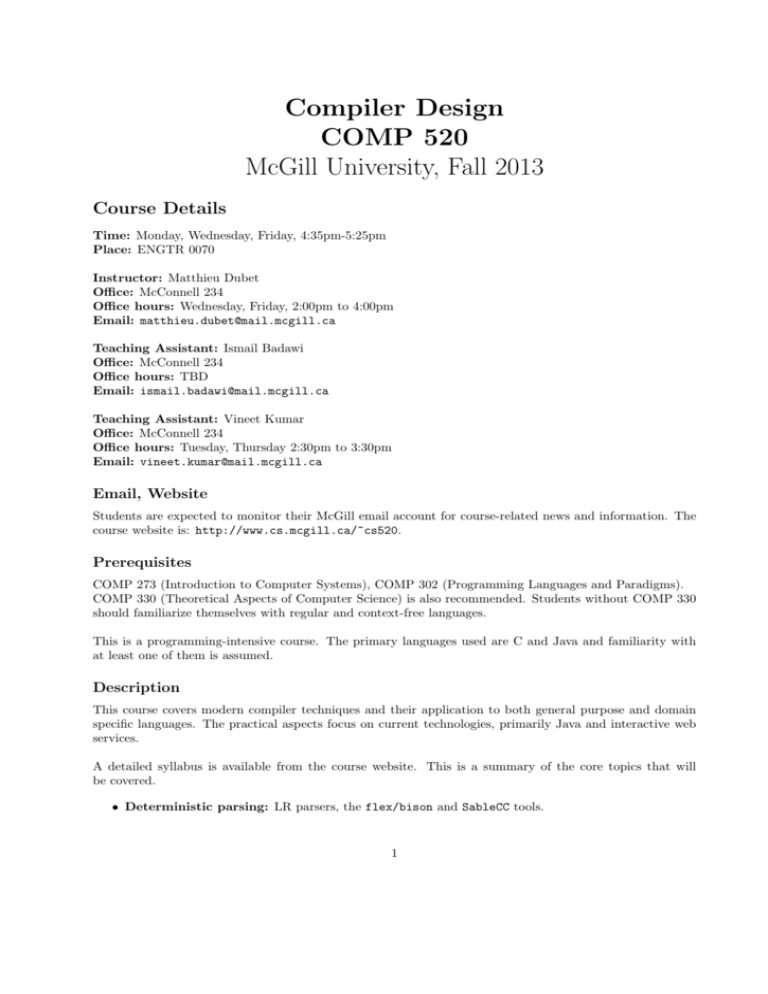
Compiler Design COMP 520 McGill University, Fall 2013 Course Details Time: Monday, Wednesday, Friday, 4:35pm-5:25pm Place: ENGTR 0070 Instructor: Matthieu Dubet Office: McConnell 234 Office hours: Wednesday, Friday, 2:00pm to 4:00pm Email: matthieu.dubet@mail.mcgill.ca Teaching Assistant: Ismail Badawi Office: McConnell 234 Office hours: TBD Email: ismail.badawi@mail.mcgill.ca Teaching Assistant: Vineet Kumar Office: McConnell 234 Office hours: Tuesday, Thursday 2:30pm to 3:30pm Email: vineet.kumar@mail.mcgill.ca Email, Website Students are expected to monitor their McGill email account for course-related news and information. The course website is: http://www.cs.mcgill.ca/~cs520. Prerequisites COMP 273 (Introduction to Computer Systems), COMP 302 (Programming Languages and Paradigms). COMP 330 (Theoretical Aspects of Computer Science) is also recommended. Students without COMP 330 should familiarize themselves with regular and context-free languages. This is a programming-intensive course. The primary languages used are C and Java and familiarity with at least one of them is assumed. Description This course covers modern compiler techniques and their application to both general purpose and domain specific languages. The practical aspects focus on current technologies, primarily Java and interactive web services. A detailed syllabus is available from the course website. This is a summary of the core topics that will be covered. • Deterministic parsing: LR parsers, the flex/bison and SableCC tools. 1 • Semantic analysis: abstract syntax trees, symbol tables, type checking, resource allocation. • Virtual machines and run-time environments: stacks, heaps, objects. • Code generation: resources, templates, optimizations. • Surveys on: garbage collection, native code generation, static analysis. Textbook A course pack is available from the McGill bookstore. It consists of chapters from Compiler Construction by Kenneth C. Louden and Modern Compiler Implementation in C by Andrew W. Appel. The course web page also contains links to various online readings. Evaluation Assignments and project: 65% Midterm: 10% Final: 25% Both exams are closed book. Assignment marks are allocated as follows: 5% for the JOOS deliverables 10% for the JOOS peephole optimizer 50% for the WIG compiler and report Both project and assignments are completed by groups, meaning that 65% of the marks in this course come from group work. The contributions of each group member will be considered in grading. If there is a significant difference between contributions of different group members, the grades may be redistributed accordingly. Assignment and Exam Policy All assignments (deliverables, milestones, and the project) are due at midnight. We will be using Git for all group submissions. Marks will be generously deducted for lateness. No assignment submissions will be accepted after marked assignments have been returned or after solutions have been discussed in class. In general, work submitted for this course must represent your own efforts. Copying assignments or tests, or allowing others to copy your work, will not be tolerated. Note that introducing syntactic changes into a copied program is still considered plagiarism. McGill University values academic integrity. Therefore all students must understand the meaning and consequences of cheating, plagiarism and other academic offences under the Code of Student Conduct and Disciplinary Procedures (see http://www.mcgill.ca/students/srr/honest/ for more information). In accord with McGill University’s Charter of Students’ Rights, students in this course have the right to submit in English or in French any written work that is to be graded. 2
